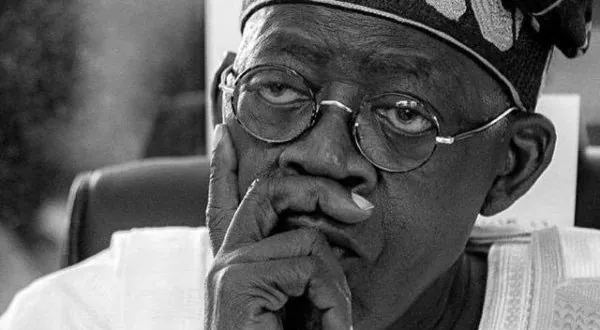In what was hailed as a groundbreaking move to strengthen Nigeria’s currency and bolster economic independence, President Bola Ahmed Tinubu’s naira-for-petroleum initiative faced unexpected resistance— not from external forces, but from within the country’s petroleum sector itself.
Now, urgent questions arise: who are these economic saboteurs, and why are they working against Nigeria’s interests?
A Bold Attempt at Economic Reform
President Tinubu’s directive for the Nigerian National Petroleum Company Limited (NNPCL) to sell crude oil to domestic refiners in naira was designed to reduce dependence on the U.S. dollar, stabilize the naira, and ensure a steady supply of locally refined petroleum.
If extended to foreign buyers, the policy could have driven demand for the naira, strengthening its value against foreign currencies.
Under the initiative, buyers—both local and international—would have had to purchase naira from the Central Bank of Nigeria (CBN) to pay for Nigeria’s high-grade Brent crude.
This would have ensured that Nigeria continued to accumulate foreign reserves while easing pressure on the exchange rate.
However, despite its potential benefits, the policy was quietly sabotaged by individuals within the petroleum sector who remain beholden to Western international monopoly capital.
The Subtle and Systematic Sabotage
The resistance was immediate. No sooner had President Tinubu given the directive than certain industry players emerged with claims that petroleum is an “international citizen” that could only be traded in U.S. dollars.
These same forces conveniently ignored that America itself had once lobbied OPEC to trade exclusively in dollars to solidify its currency’s global dominance.
For six months, the Technical Sub-Committee tasked with implementing the policy failed to produce a long-term operational template. While their incompetence seemed bureaucratic at first, it soon became clear that this was a deliberate stalling tactic.
Despite these challenges, the policy initially showed promise. By October 1, 2024, Dangote Refinery, the primary beneficiary of the naira-for-petroleum deal, began to steadily lower petrol prices.
Between October and December 2024, the price of petrol dropped from N970 to N815 per liter, making it N70 cheaper than imported alternatives.
NNPCL’s Dubious Role in Undermining the Deal
The biggest red flag came from NNPCL’s failure to meet its crude oil supply obligations to Dangote Refinery.
Although President Tinubu mandated the supply of 350,000 barrels per day, NNPCL never delivered more than 120,000 barrels per day—and by February 2025, supply had ceased entirely.
This sudden halt forced Dangote Refinery to announce an increase in petrol prices, immediately causing a surge at the pumps. Within days, fuel prices jumped to N930 in Lagos and N970 in parts of Northern Nigeria.
Industry insiders suggest that those controlling NNPCL deliberately starved Dangote Refinery of crude oil, fearing that continued price reductions would expose the long-running fraud in Nigeria’s petroleum pricing.
If Dangote Refinery could sell petrol at N815 per liter while making a profit, why had NNPCL been selling at exorbitant prices for decades?
Regulatory Failures and Complicity
The Nigeria Upstream Petroleum Regulatory Commission (NUPRC), which should have provided oversight, instead contributed to the chaos. The commission stalled crucial meetings, failed to enforce compliance, and ultimately did nothing to prevent the deal’s collapse.
Meanwhile, economic saboteurs within the petroleum sector found new ways to justify their resistance, fabricating excuses about the “impracticality” of selling crude in naira. Their ultimate goal was clear: to restore the dominance of dollar transactions and maintain the status quo that benefits a few at the expense of the entire nation.
Legal Implications: Enforcing the CBN Act
The collapse of the naira-for-petroleum deal raises serious legal concerns. According to Sections 20(1) and 20(5) of the Central Bank of Nigeria Act, only the naira is recognized as legal tender within the country, and no entity has the right to refuse it for transactions.
Yet, those within NNPCL and the oil sector have actively resisted compliance with this law.
The Economic and Financial Crimes Commission (EFCC) must now intervene to enforce these provisions and investigate those responsible for derailing the initiative.
The Path Forward: Restoring the Naira-for-Petroleum Deal
Nigeria’s economic stability should not be dictated by a handful of petroleum executives serving foreign interests.
President Tinubu and NNPCL’s new chairman, Pius Akinyelure, must leverage their private sector expertise to revive and enforce the naira-for-petroleum policy.
Conclusion: A Battle for Nigeria’s Economic Sovereignty
The fate of the naira-for-petroleum deal is not just about fuel prices—it is about Nigeria’s long-term economic sovereignty. The battle is between those fighting for a self-sustaining economy and those determined to keep the country perpetually dependent on foreign interests.
If this economic sabotage is not addressed, Nigerians will continue to pay the price—not just in higher petrol costs, but in a weakened currency, rampant inflation, and diminished national prosperity.
The choice before Nigeria’s leadership is clear: either enforce economic independence or allow external forces to dictate the country’s financial future.





